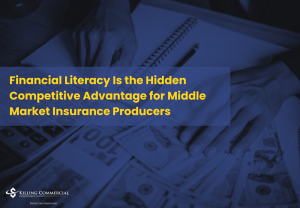
Turning Homeowners Into Referral Engines: How Homebot Helps Insurance Agencies Win Personal Lines Through Automation, Relationship Equity, and Real Estate Synergy
Personal lines has quietly become one of the most competitive segments in the insurance industry. Agencies that once dominated their local markets are now fighting to differentiate themselves against direct writers, digital-first carriers, and large brokers with massive content machines.






Responses